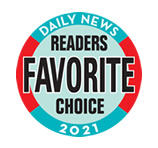Drug and Alcohol Abuse Prevention
American Career College (the “College”) is committed to providing a campus community environment that promotes the health, safety, and academic success of students, and personal development of faculty and staff. The Drug Free Schools and Communities Act, [20.U.S.C. 1145g, (34 CFR Part 86)], requires institutions of higher education to enact policies for preventing the unlawful possession, use, or distribution of alcohol and illicit drugs by students and employees.
The College will strictly enforce federal, state, and local laws, as well as its own alcohol and drug policies and procedures which support these laws. It is the responsibility of every member of the College to know the risks associated with the use and abuse of alcohol and other drugs and to assist the College in creating an environment which promotes health-enhancing attitudes and activities.
American Career College adheres to the following prohibitions regarding drugs and alcohol:
- Use, possession, sale, distribution and/or production of narcotic or other controlled substances (including marijuana), or acting as an accessory, liaison, or facilitator for any of the above, except as expressly permitted by law. The possession or use of marijuana, even with a medical recommendation or medical license, is prohibited on College property in compliance with Federal law. Any drugs and/or paraphernalia found to be in a student’s possession, or assigned area will be considered to be in the possession of the student whether or not the student is the individual who purchased or furnished the drugs, paraphernalia, or handmade drug use device. Confiscated paraphernalia will not be returned to students at any time.
- Illegal or improper use of prescription or over-the-counter medicines. All prescription medicines must be kept in their original bottle and must have the prescription from the doctor noted on the bottle. Prescription medicines found without their prescription attached will be confiscated until such time that the prescription can be produced. All prescription medications must be prescribed to the person in possession of the medication.
- Possession of drug paraphernalia, including but not limited to: water pipes, scales, needles, clips, rolling papers, bongs etc., or any device that may be associated with drug use, regardless of whether it is purchased or handmade, even if used as props for filming.
- Use of a legal substance in an improper manner (e.g., ingesting a cleaning chemical, inhaling other chemical substances for the purpose of intoxication).
- Providing drugs with the intent of taking advantage of another.
The possession or use of drugs or alcohol is strictly forbidden on College premises or during any activities conducted off-campus. Faculty and student peers have an obligation to act on concerns regarding alcohol or drug abuse or dependency when encountered by a student. Students who need counseling assistance for drug or alcohol dependency should contact the Campus Executive Director or Director of Education, or Program Director for referrals. All referrals will be kept confidential. Information on drug abuse prevention is available at the College for all students and employees.
The primary goal of students at the College is to achieve academic excellence. Use of alcohol and other drugs will not be tolerated. Also, irresponsible use of alcohol by persons of legal age will not be excused.
All students, faculty and staff will adhere to the following guidelines:
- At no time will the College allow possession, use, and/or distribution of an illegal drug.
- Students, employees, and guests must adhere to federal, state and local laws and regulations.
- The College will impose disciplinary action against students and employees for violating these standards of conduct, which may include suspension, termination of employment, or completion of a drug or alcohol rehabilitation program.
- Brochures are available in the Student Services office and the Human Resources Department.
- Information on Drug Awareness programs, counseling, treatment, and other related services are available through: The Center for Drug Abuse Treatment and Referral Hotline: 1-800-662-HELP
- Students and employees seeking assistance in overcoming drug or alcohol related problems are encouraged to contact this organization.
The following guidelines describe the actions that may be taken when students are suspected of violating drug or alcohol policies:
- Faculty are obligated to take immediate action if a student involved in a College program is suspected, based on inappropriate conduct, physical symptoms, or other indicators, of being under the influence of drugs or alcohol.
- Faculty or peers who suspect a student of alcohol or drug use/dependency (based on a pattern of behavior consistent with impairment) will document specific behaviors or confirmed evidence of such impairment. This documentation will be submitted in writing to the Campus Executive Director/Director of Education who will determine the action to be taken. If the Campus Executive Director/Director of Education and involved faculty feel the evidence is compelling and indicates violation of drug and alcohol policies, the student will be confronted with the concerns and evidence. The Campus Executive Director/Director of Education and involved faculty will decide what type of follow-up is indicated, based on the outcome of this conference.
- If reasonable suspicion of alcohol or drug use occurs in the classroom or clinical setting, the student will be immediately removed from that setting. The faculty member will discuss the concerns with the student. If reasonable suspicion still exists, the Campus Executive Director (or Director of Education in his/her absence) will be informed and will determine what actions need to be taken. Screening for drugs or alcohol will be required. The student will have to give consent for such testing and authorization for results to be made available to the College.




